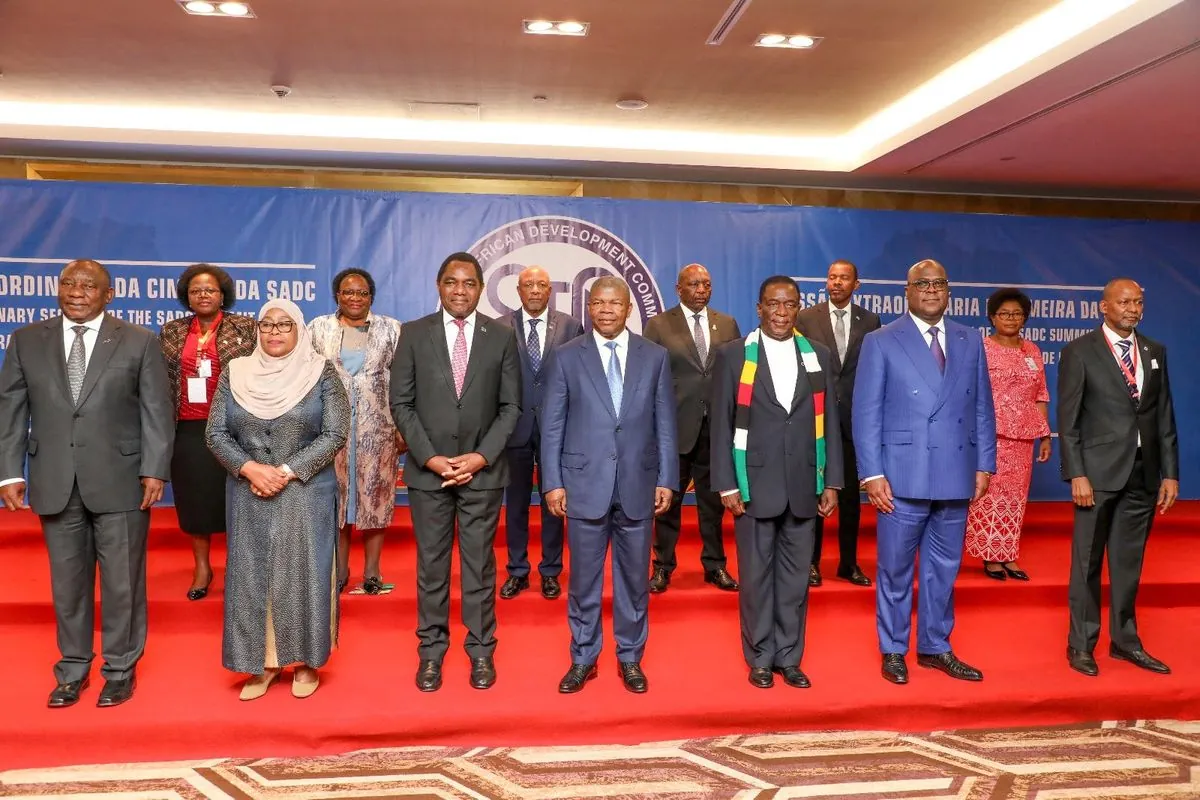The Southern African Development Community (SADC) is set to convene its summit in Harare, Zimbabwe, on August 17, 2024. This gathering of the 16-nation bloc occurs against a backdrop of pressing health concerns and human rights issues.
Earlier this week, the World Health Organization (WHO) elevated the status of mpox outbreaks in Africa to a global health emergency. The Democratic Republic of Congo, a SADC member, accounts for over 90% of mpox cases on the continent. Scientists have identified a potentially more infectious variant of the virus in the country, raising concerns about its potential to cross international borders.
South Africa's Democratic Alliance, part of the country's coalition government, has urged its delegates to address the mpox situation at the summit. While southern African nations have reported few cases, the party emphasizes the rapid change potential, citing Congo's significant outbreak.
"The situation in Congo shows just how fast the situation can change."
As SADC leaders arrive in Harare, international attention has turned to Zimbabwe's human rights record. United Nations human rights experts and organizations like Amnesty International and Human Rights Watch have voiced concerns over recent political crackdowns. More than 160 activists and opposition members have reportedly been arrested in recent months.
A particularly troubling incident occurred in late July 2024, when three activists were allegedly subjected to enforced disappearance and torture, including waterboarding, after being removed from a plane and arrested by Zimbabwean security forces.
Emmerson Mnangagwa, Zimbabwe's 81-year-old president, is poised to assume the rotating leadership of SADC. However, there has been minimal diplomatic pressure from neighboring SADC countries regarding the alleged human rights violations, despite reports of a crackdown before and after last year's presidential election.
In preparation for the summit, Zimbabwe has undertaken various infrastructure improvements, including road repairs and promises of uninterrupted electricity and water supplies for delegates. These efforts stand in stark contrast to the frequent blackouts and water shortages experienced by ordinary Zimbabweans.
Political analysts, such as Antony Reeler, express skepticism about the likelihood of regional leaders using this summit to address Zimbabwe's rights record. "They avoid the difficult issues," Reeler noted, highlighting the tendency of SADC nations to sidestep contentious topics.
As the summit approaches, the international community watches closely to see whether the SADC will prioritize addressing the mpox emergency and human rights concerns or continue its pattern of avoiding challenging discussions.
